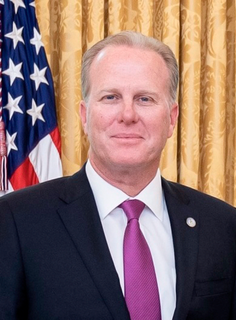A Quote by Marcela Valladolid
Growing up, I didn't realize how unique it was to live on the border of the United States and Mexico. It wasn't until I started doing interviews with the press that I actually began to appreciate just how cool it was that I would cross the international border every single day from Tijuana into San Diego to go to school.
Related Quotes
Those of us that were raised in Tijuana have so much access to San Diego. I was crossing the border every day when I was a kid, and that back and forth has a huge influence on the cuisine. So the U.S. is coming down to Tijuana, Tijuana is going to San Diego. There's this great blending, a great exchange.
Of course, San Diego chooses not to regard the two cities as one. Talk about alter ego: Tijuana was created by the lust of San Diego. Everything that was illegal in San Diego was permitted in Tijuana. When boxing was illegal in San Diego, there were boxing matches in Tijuana; when gambling was illegal, there was always Tijuana.
There is San Diego - this retirement village, with its prim petticoat, that doesn't want to get too near the water. San Diego worries about all the turds washing up on the lovely, pristine beaches of La Jolla. San Diego wishes Mexico would have fewer babies. And San Diego, like the rest of America, is growing middle-aged.
Most people who live at the border or are familiar with the border know that a Berlin-like wall stretching from San Diego to Brownsville is not necessary. And the costs would be prohibitive. And there are places on the border, such as the Arizona desert or the open terrain around the Big Bend in South Texas, where Mother Nature has created her own barrier that is not easily passable. Or if you do pass through it, you are easily detected.
We need to realize that the economic situation between Mexico and the United States is not just one in which we trade with one another. We make things together. We have shared production platforms. Cross-border trade is part of a single production process, and while apparently the Trump administration will seek to re-examine elements of that production platform, it is what it is and won't be easily dismantled.
Each sector of the border faces unique geographical, cultural and technological challenges that would be best addressed with a flexible, sector-by-sector approach that empowers the Border Patrol agents on the ground with the resources they need. What you need in San Diego is very different from what you need in Eagle Pass, Tex.
People ask me all the time, 'What do you do for Cinco de Mayo?' And my honest answer is always, 'When I was growing up in Mexico, nothing. Really, nothing. It was a school day. It was totally normal.' But when I grew up and started going to San Diego and started drinking margaritas, that's when Cinco de Mayo celebrations started for me.
Growing up, everybody would cross the border, even to just do grocery shopping. A lot of traditional American foods stuck with my parents and became part of my upbringing. This all had to do with the proximity to the border. We were an absolute mix of classic Americana, traditional Mexican, and Baja cuisine.
As a matter of fact if you think about [Donald Trump press conference after visit to Mexico], that could have been may be one of the Gang of Eight, the bipartisan group that in the Senate some years ago passed a bill that said border security. It said thousands of new border guards to deal with the porous border. It talked about a pathway to legalization for the 11 or 12 million undocumented that live in this country.
































